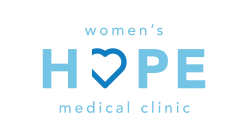Are you experiencing some new and unexpected changes to your body and aren’t sure what they mean? Early pregnancy can manifest itself through some unlikely symptoms. So, how can you know which ones might be indicating that you are pregnant? While the only way to be sure is to take a pregnancy test, here are some of the symptoms that might indicate that you should consider taking one.
In the first few weeks of pregnancy, it is common to experience some cramping and light spotting as the baby is implanted into the wall of the uterus. At about 4 weeks following conception, your body produces a hormone that might cause you to miss your period. Around the same time, you will likely start experiencing aching and tenderness in your breasts. Because your body is producing higher levels of progesterone and estrogen, don’t be surprised by frequent mood swings.
An unlikely symptom of pregnancy that you might not expect is a raised body temperature. It may not be a significant increase, but your basal body temperature may be up to 0.4 degrees higher as a result of your pregnancy. Because your progesterone levels are raised earlier in your pregnancy, you may also feel more fatigued throughout the day. If you notice that your resting heart rate is a little higher, this is also a common sign of pregnancy as the amount of blood pumped out by the heart increases by 30 to 50%. Your heart will have to start working harder as your baby grows, and it is normal for your heart rate to be as high as 90 beats per minute during pregnancy (Physical Changes During Pregnancy – Women’s Health Issues, 2021).
You may notice that you’re taking more trips to the restroom than usual, as frequent urination is a common early sign of pregnancy. And though it is commonly called “morning sickness,” you may experience nausea and vomiting at any time of the day early on in pregnancy. (Early Pregnancy Symptoms, 2018)
If you are experiencing a few or many of these symptoms, you may want to consider taking a pregnancy test either at home or in a doctor’s office. You can get a blood test done in a doctor’s office, or you can take an at-home or in-office urine test. If done correctly, home pregnancy tests are usually 97 to 99 percent accurate. Pregnancy tests are used to detect a hormone called human chorionic gonadotropin (HCG), which is normally only present during pregnancy. Urine tests can detect the mere presence of the hormone, while blood tests can pick up smaller amounts of it (Pregnancy Test: MedlinePlus Medical Test, 2020).
You can buy pregnancy tests at drug stores and the pharmacy department at grocery stores. You can also receive one at your primary care physician or your regular Ob-Gyn. At Women’s Hope Medical Clinic, we provide free and confidential pregnancy tests. If you think you may be pregnant, call our office and schedule your free pregnancy test and consultation.
